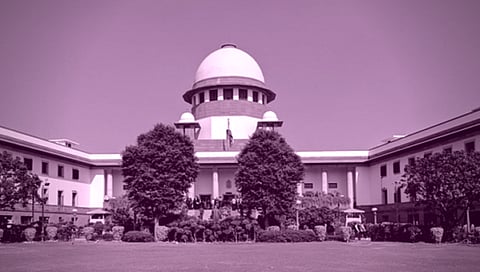
- Latest Legal News
- News
- Dealstreet
- Viewpoint
- Columns
- Interviews
- Law School
- Legal Jobs
- हिंदी
- ಕನ್ನಡ

The Supreme Court bench of Justices Dipak Misra, Rohinton Fali Nariman, and Uday Umesh Lalit delivered the verdict (authored by Justice Lalit) in Vasanta Sampat Dupare v State of Maharashtra, on May 3. It was reserved on October 5, 2016.